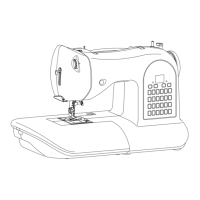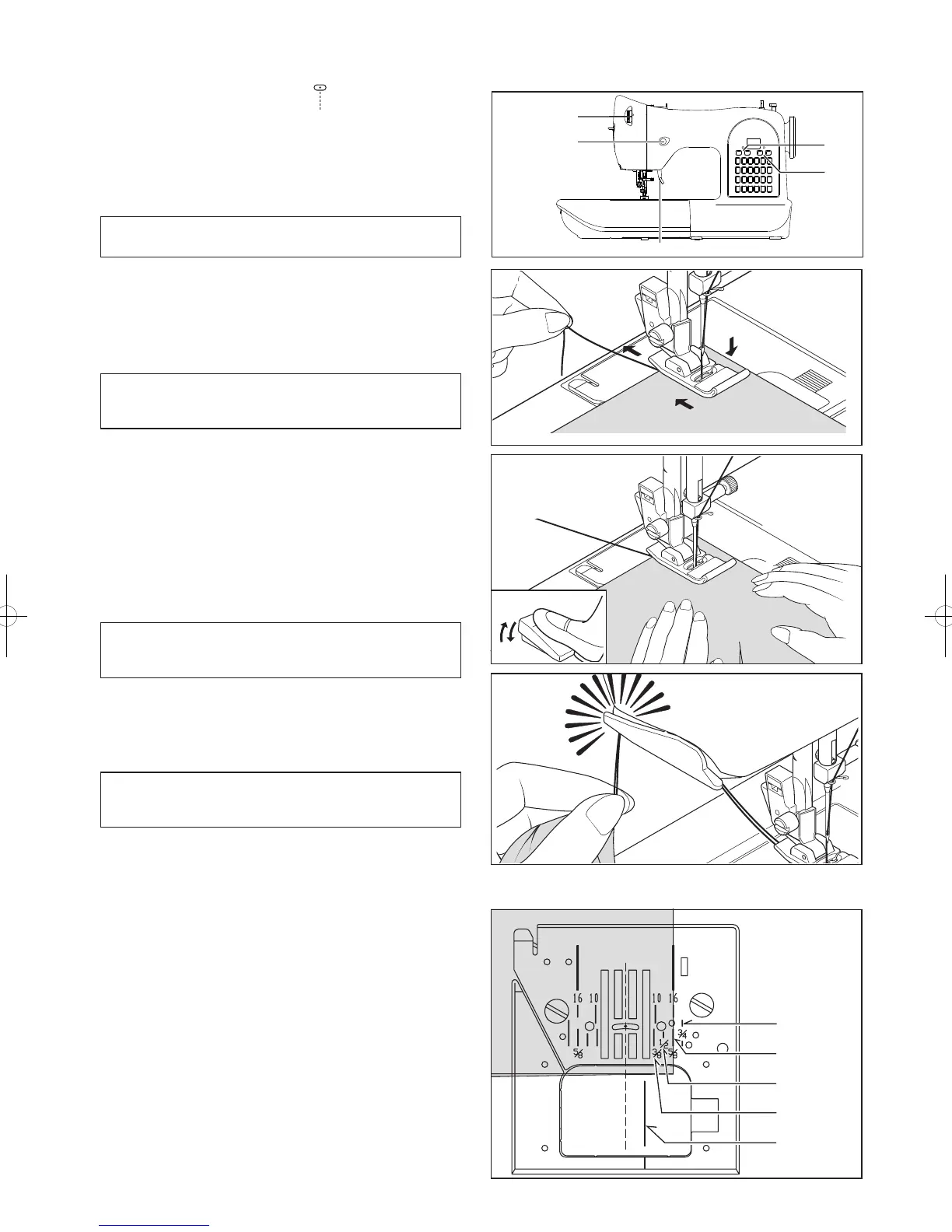32
STRAIGHT STITCHING
Straight stitch is most frequently used for all types of sewing.
Let’s begin by following the steps below.
1. SETTINGS
Presser foot - General purpose foot
Thread tension control - AUTO
A. Thread tension control
B. Reverse stitch button
C. Presser foot lifter
D. Stitch length control
E. Needle position control
2. Pull both threads under the presser foot toward the back of
the machine, leaving about 6” (15cm) clear.
3. Place the fabric under the presser foot and lower the
presser foot lifter.
4. Turn the hand wheel counter clockwise until the needle
enters the fabric.
5. Start the machine. Guide the fabric gently with your hands.
When reaching the edge of the fabric, stop the sewing
machine.
6. First turn the handwheel counter clockwise until the needle
is at its highest position, then raise the presser foot, draw
the fabric to the rear and cut off excess threads with the
thread cutter located on the top of face cover as shown.
KEEPING SEAMS STRAIGHT
To keep the seam straight, use one of the numbered guide
lines on the needle plate. The numbers indicate distance from
the needle at its center position.
The guide line on the bobbin cover plate is 1/4" (6mm) seam
guide line which is used for piecing quilt blocks and also for
narrow seams, such as those in doll clothes or baby garments.
NOTE: To secure the stitching and avoid raveling,
press the reverse stitch button and sew a few
stitches at the start and end of the seam.
NOTE: The needle plate has both metric and inch
markings as an aid for guiding your fabric when
sewing a seam.
NOTE: Based upon the weight of the fabric, slight
“ne tuning” of the tension may be desired.
D
E
NOTE: Since a straight stitch has no width, the
stitch width control is used to change the needle
position.
C
A
B
1
6
5
2
3
4
3/4" (19
mm
)
5/8" (16
mm
)
1/2" (13
mm
)
3/8" ( 9
mm
)
1/4" ( 6
mm
)

